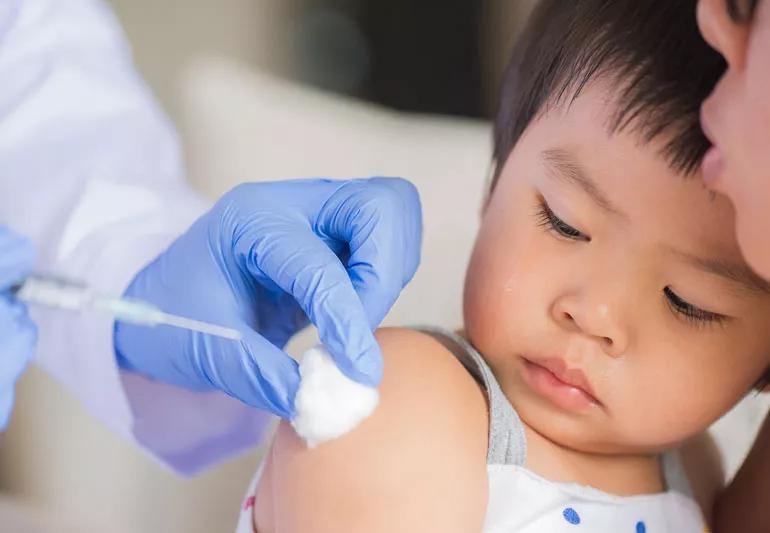
Do you really need to vaccinate your kids and get regular well-checks?
Cleveland Clinic is a non-profit academic medical center. Advertising on our site helps support our mission. We do not endorse non-Cleveland Clinic products or services. Policy
The answer, says pediatrician Wadie Shabab, MD, is a resounding, “Yes!”
Vaccines are very safe and have saved children from getting many diseases, from polio to chickenpox. And being on a well-child visit schedule helps make sure your child is meeting important developmental milestones.
Dr. Shabab explains when your child needs which shot and a trip to the doctor’s office.
Childhood immunizations help protect your child from getting a number of illnesses. These vaccines, mostly given as shots at a well-child visit, are very safe and can help prevent easily spread diseases that can cause serious health problems.
The American Academy of Pediatrics recommends the following:
Key:
DTaP: Diphtheria, tetanus, acellular pertussis vaccine.
HAV: Hepatitis A vaccine.
HBV: Hepatitis B vaccine.
Hib: Haemophilus influenzae type B, or flu.
HPV: Human papillomavirus vaccine.
IPV: Inactivated polio vaccine.
MCV4: Meningococcal conjugate serotype A, C, W and Y vaccine for meningitis.
Men B: Meningococcal Serotype B vaccine for meningitis.
MMR: Measles/mumps/rubella vaccine.
PCV: Pneumococcal conjugate vaccine for meningitis.
Rotavirus: Vaccine against potentially life-threatening diarrhea.
TB: Tuberculosis screening.
Varicella: Chickenpox vaccine.
It’s essential that you stick to a well-child check schedule. Making sure your child is up to date on recommended vaccines is vital for your child’s health.
Children who aren’t vaccinated are more likely to contract diseases like whooping cough and measles. These diseases are highly contagious and can become serious health issues.
Additionally, well-checks are necessary to track and document your child’s growth and developmental and behavioral milestones. During a well-check visit, parents and caregivers can discuss any concerns they have when it comes to vaccinations and their child’s overall health.
“Children grow and develop fast — and the rate of this growth is the fastest in the first three years of life,” notes Dr. Shabab. “Your healthcare provider will monitor your child’s weight, height, BMI, vital signs, hearing, vision, developmental/behavioral milestones, lead, TB and other screening tests at the appropriate age and interval during their well-child visits.
“This information, along with discussing your child’s diet, sleeping, academic achievement, screen time and safety, will help your provider in partnering with you in maintaining and helping your child reach their health and developmental goals.”